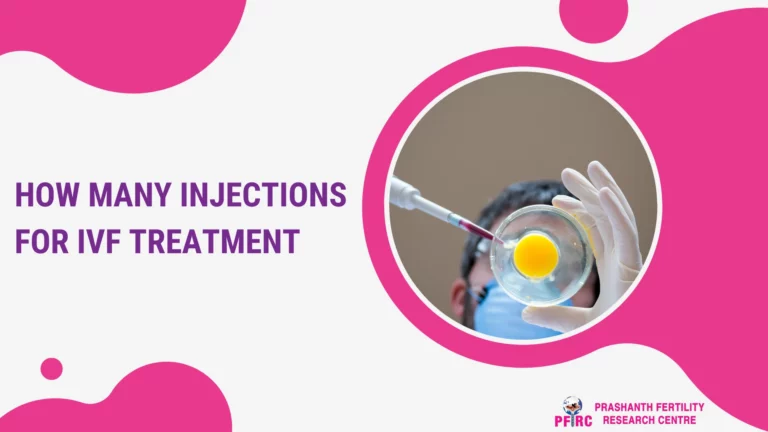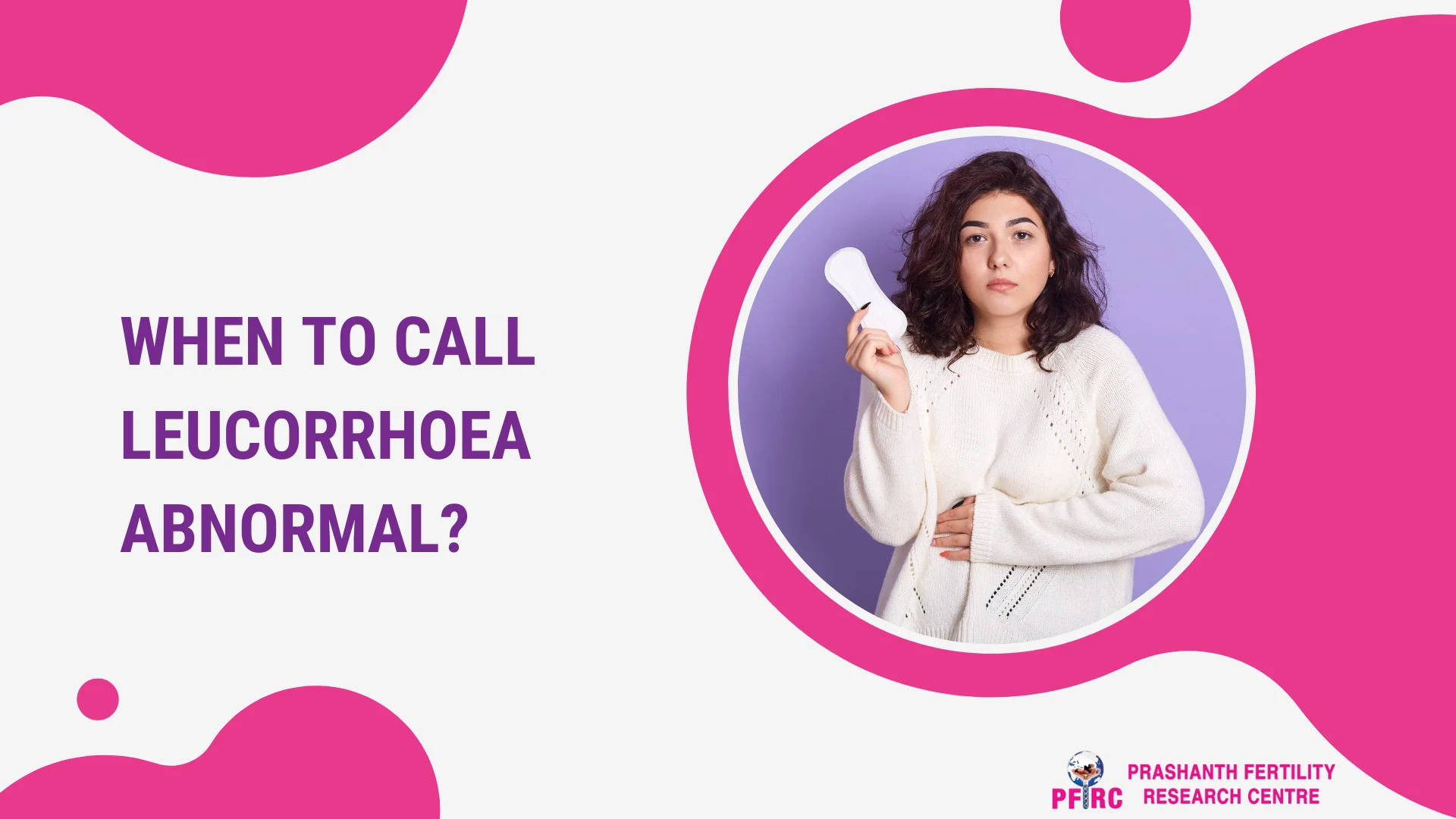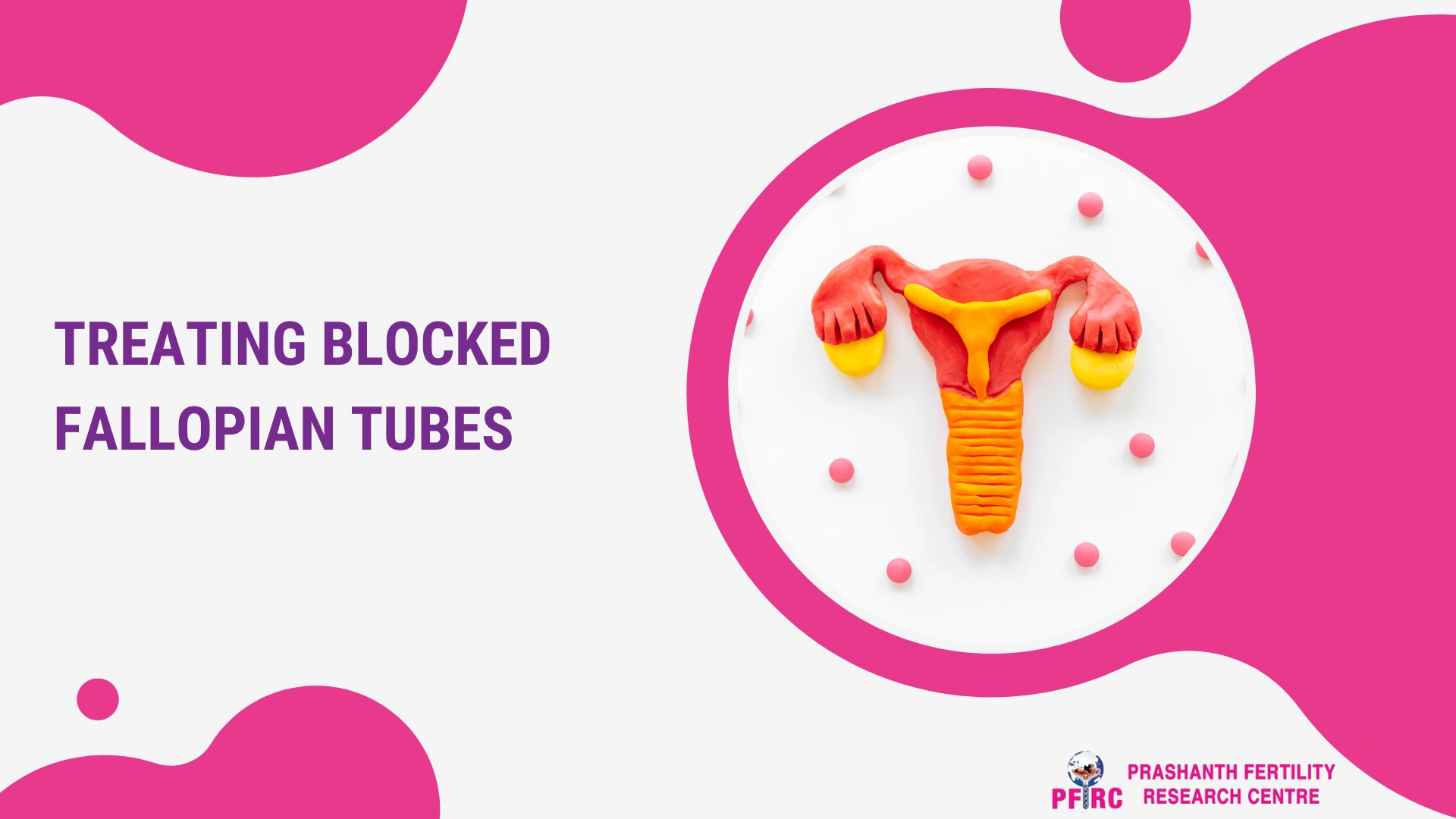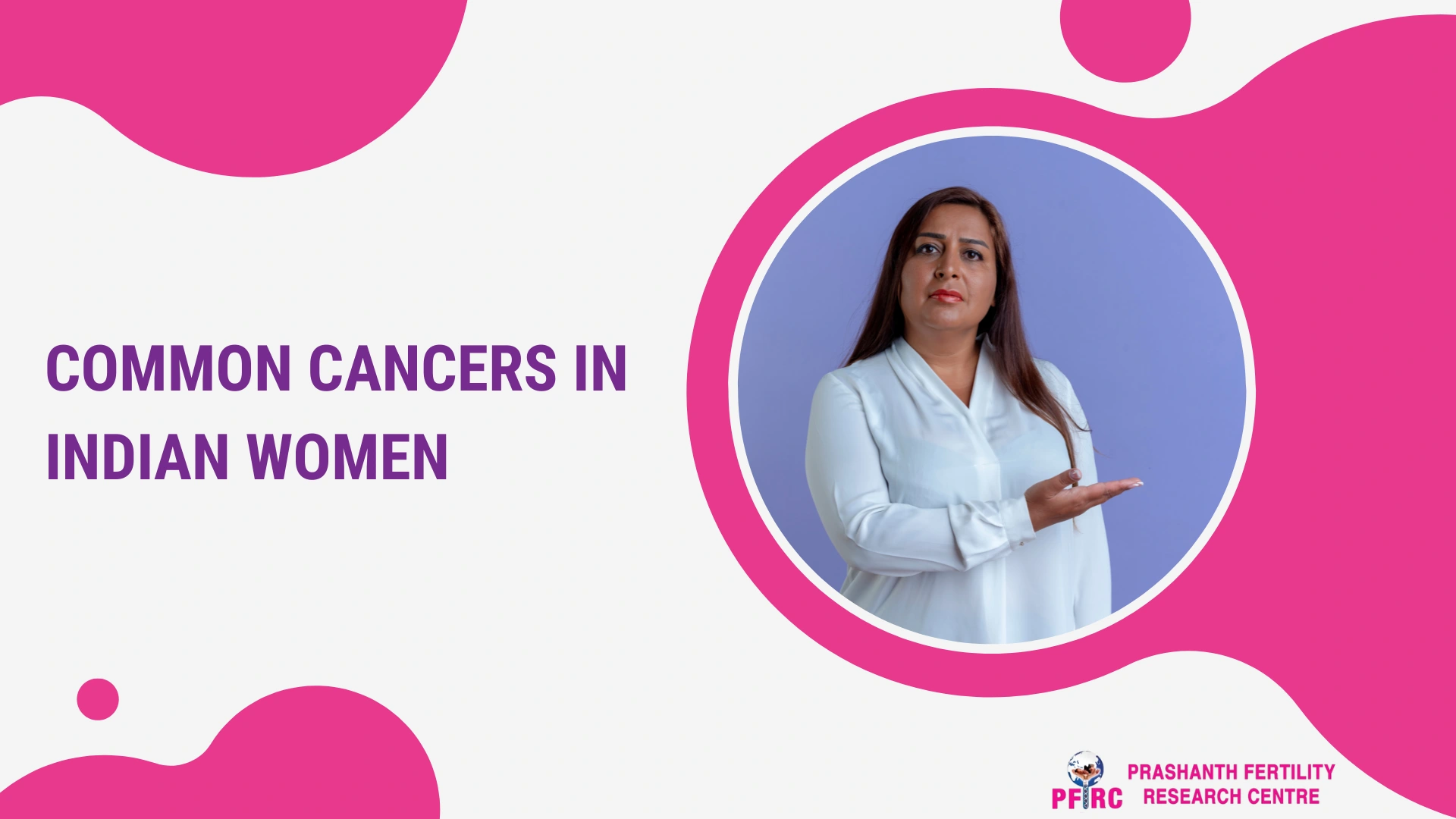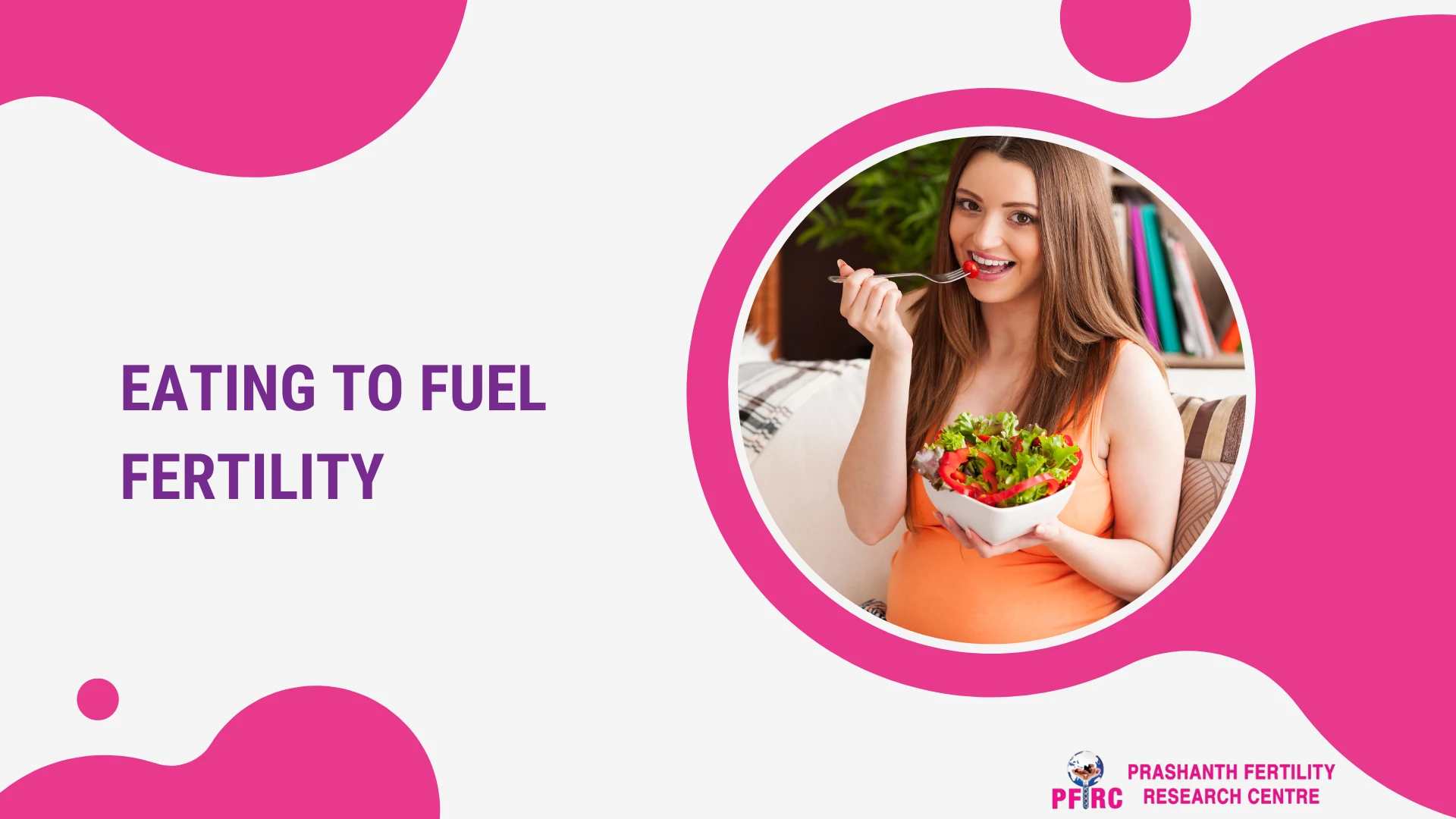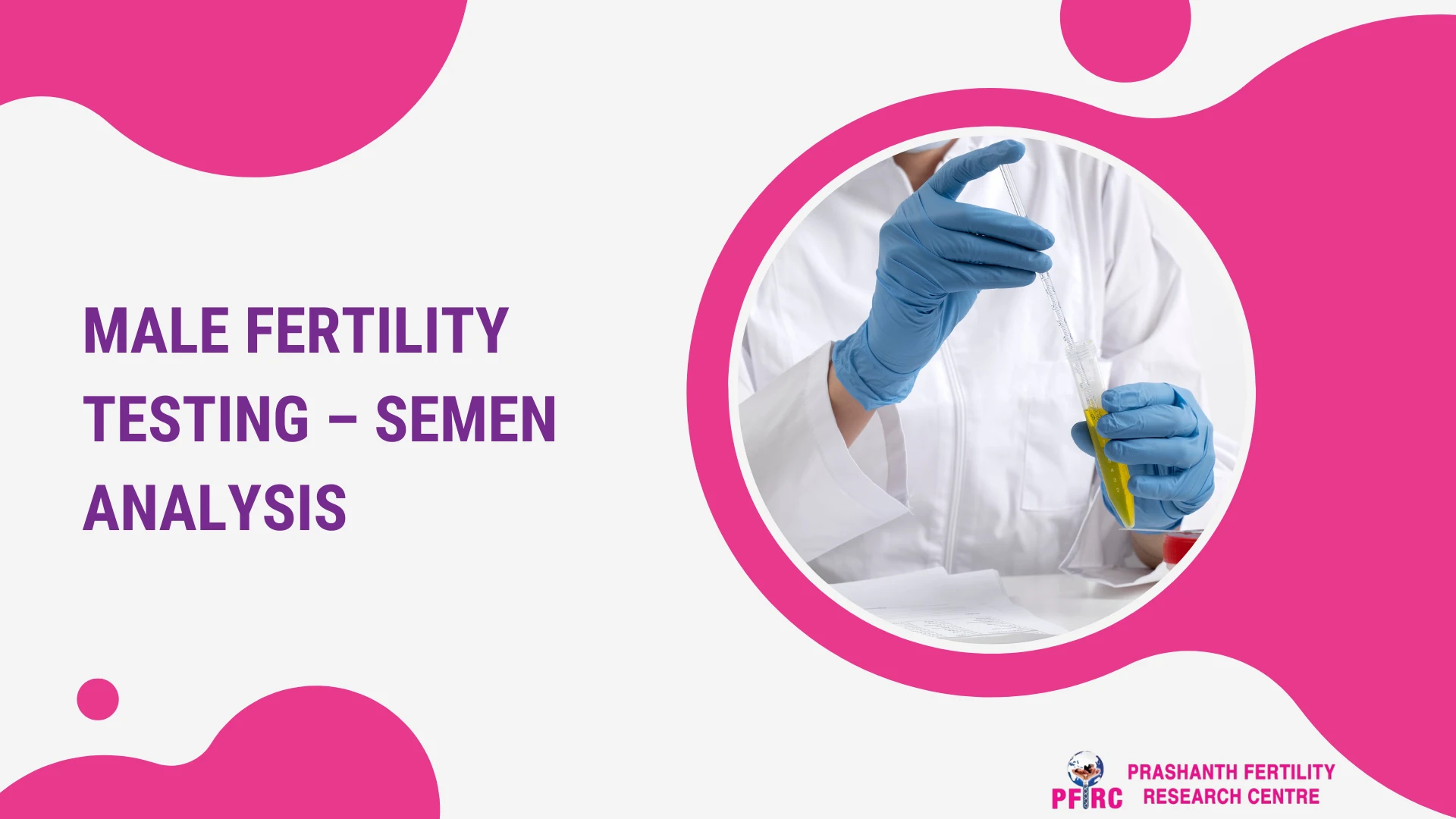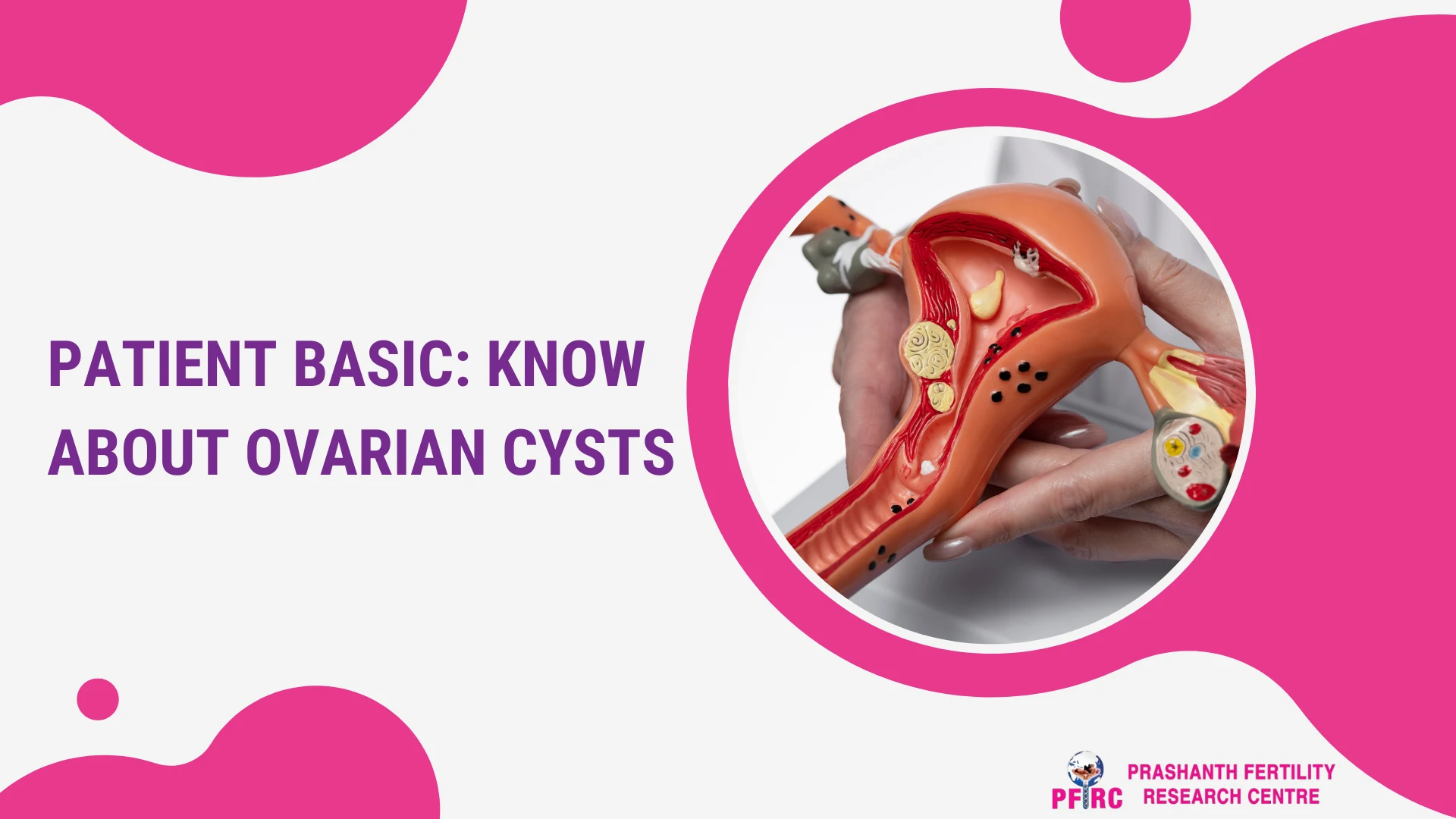IVF (In Vitro Fertilization) is the process of collecting and fertilizing eggs and sperm in a laboratory.
IVF is a complex procedure that involves a series of procedures like ovulation induction, egg & sperm retrieval,semen preservation, fertilization, embryo culture, and embryo transfer.
Each of the above steps is important and should be undergone with care and precision.
Ovarian stimulation is the first step of the IVF process. In this procedure, hormonal injections are administered to the female partner to stimulate her ovaries and produce more mature eggs.
There are two main questions women have regarding IVF injections: how many and how long. In this article, we will discuss in detail the injections administered during the IVF process. Continue reading to learn more.
How Many Injections Are Required for IVF?
Women are generally administered an average of 90 injections (1–2 shots per day) during each IVF cycle. This goes for about 8-14 days, depending on the woman’s condition.
The injections are either administered subcutaneously (injected directly into the fat under the skin) or intramuscular (injected directly into the muscle).
The number of injections each woman is administered varies depending on the course of the treatment and cycle.
Why are IVF injections given during ovarian stimulation?
The main idea behind these hormonal injections is to help women produce more mature eggs. Naturally, a woman’s body produces only one or two mature eggs a month.
This number won’t be sufficient to conduct IVF. A minimum of six eggs is required to successfully undergo an IVF cycle. This is because the more eggs one has, the more their chances of success.
Even if some eggs don’t grow till the blastocyst stage, at least one or two eggs might be available for embryo transfer. Below are some hormonal injections that will be administered to women during IVF.
FSH injections
Follicle Stimulating Hormone (FSH) injections are administered to stimulate the development of numerous follicles and produce several mature eggs. It is the first and crucial medication in the ovulation stimulation process.
LH injections
Luteinizing Hormone (LH) injections are administered to enhance the ability of the FSH hormone to produce more eggs.
HCG Injections
When the follicles are about 15-18 mm in size, hCG injections are administered to induce them to release mature eggs. These injections are injected about 32–36 hours before egg retrieval to trigger the last stage of egg maturation.
Are IVF Injections Painful?
IVF injections are generally not painful. Most women will only feel a sting due to the sharp needle. But, some women might feel more pain due to anxiety and their fear of needles.
The most painful part of IVF injections is not the hormonal injections given during ovulation stimulation but the oily progesterone injections given for luteal phase support after embryo transfer.
These shots are painful and often leave a scar on the butt. This injection is also why most women are repellant to IVF treatments.
How to Make IVF Injections Easier?
The whole IVF process, especially the part where women must be injected 1 or 2 times every day, can be challenging to many. Women may feel uncomfortable or tired to undergo the whole process. Here are some practices women can follow to make the ovulation stimulation step much easier and bearable.
- Learn about the procedure, the related side effects, and steps to manage the symptoms.
- Consult a cognitive behavioral therapist (CBT) expert if you have a fear of needles and injections. This is because the total treatment may involve up to 90 shots.
- Subcutaneous injections are very short and sharp. Try pinching and pulling your skin away from your muscle before administering the injection. This minimizes the sensation of pain.
- Use a heating pad or ice pack application to numb the injected area. For the intramuscular shot, using a heating pad for roughly 10-15 minutes can relax the muscles. For the subcutaneous shot, 15-30 seconds of icing is sufficient to numb the nerves.
- Use over-the-counter (OTC) numbing agents like Anbesol to numb the injection site. Apply the gel on the injection site a few minutes before the injection. Note: Wipe away the gel with an alcohol swab before injection.
If you are still struggling to cope with the injections, you can consult your fertility doctor for other medication that can relieve your pain.
Which Time is Best for IVF Injections?
Do I take IVF injections in the morning or evening? Most couples who wish to undergo IVF treatments have this question.
According to research, there was no significant difference between taking the shots in the morning or evening. But women should note that the injections should be taken at the same time every day.
Ovulation induction takes around 8–14 days: from the first day of injection to the day of egg production and retrieval. Once women have started receiving
these injections, they should maintain a healthy lifestyle and take certain measures to maintain optimum health.
What are the side effects of IVF injections?
Like any other medication, the injections administered to stimulate ovulation also have some side effects. These effects are minor and only cause some discomfort. Below are some side effects associated with ovulation induction.
- Abdominal pain, bloating, and nausea
- Changes in the cervical mucus
- Headache, hot flashes, and night sweats
- Upset stomach
- Frequent mood swings
- Dizziness and temporary visual disturbances (blurred vision)
- Tender breasts
- OHSS (ovarian hyperstimulation syndrome) caused due to over-stimulation of ovaries
These side effects vary for each person based on their health condition and tolerance level. These side effects are temporary and won’t cause any future complications. So women don’t need to worry too much.
Conclusion
IVF is an amazing opportunity for infertile couples to have a baby. Understanding and preparing for the process mentally and physically can help them go through it smoothly.
Women can also maintain journals and note down the timeline of the entire process to get a clear idea of the schedules and visits they need to take.
FAQs
At the beginning of the menstrual cycle, the female partner has to go to the IVF center for the “baseline” check, typically on days 2 or 3 of her period. Blood and ultrasound tests will be taken, and the patient will begin receiving hormone injections following this session.
These hormonal injections play an important role in IVF procedures. They are administered to women to stimulate their ovaries and make them produce more eggs. These eggs are then collected and used for fertilization.
Women are usually given three types of injections. These injections work together in stimulating the ovaries and maturing of eggs. They are
- FSH injections,
- LH injections, and
- hCG injections.
Women will take medicine for eight to 14 days throughout an IVF cycle to stimulate the growth of new egg follicles in their ovaries, where the eggs are produced. Following their medical history and treatment plan, their specialist will prescribe the dosage for these injections.

